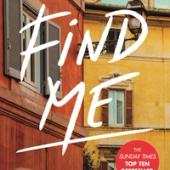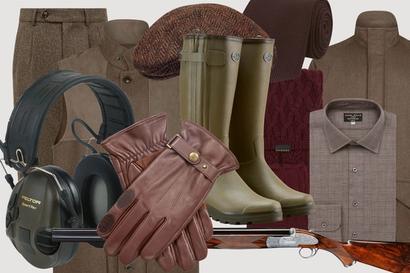
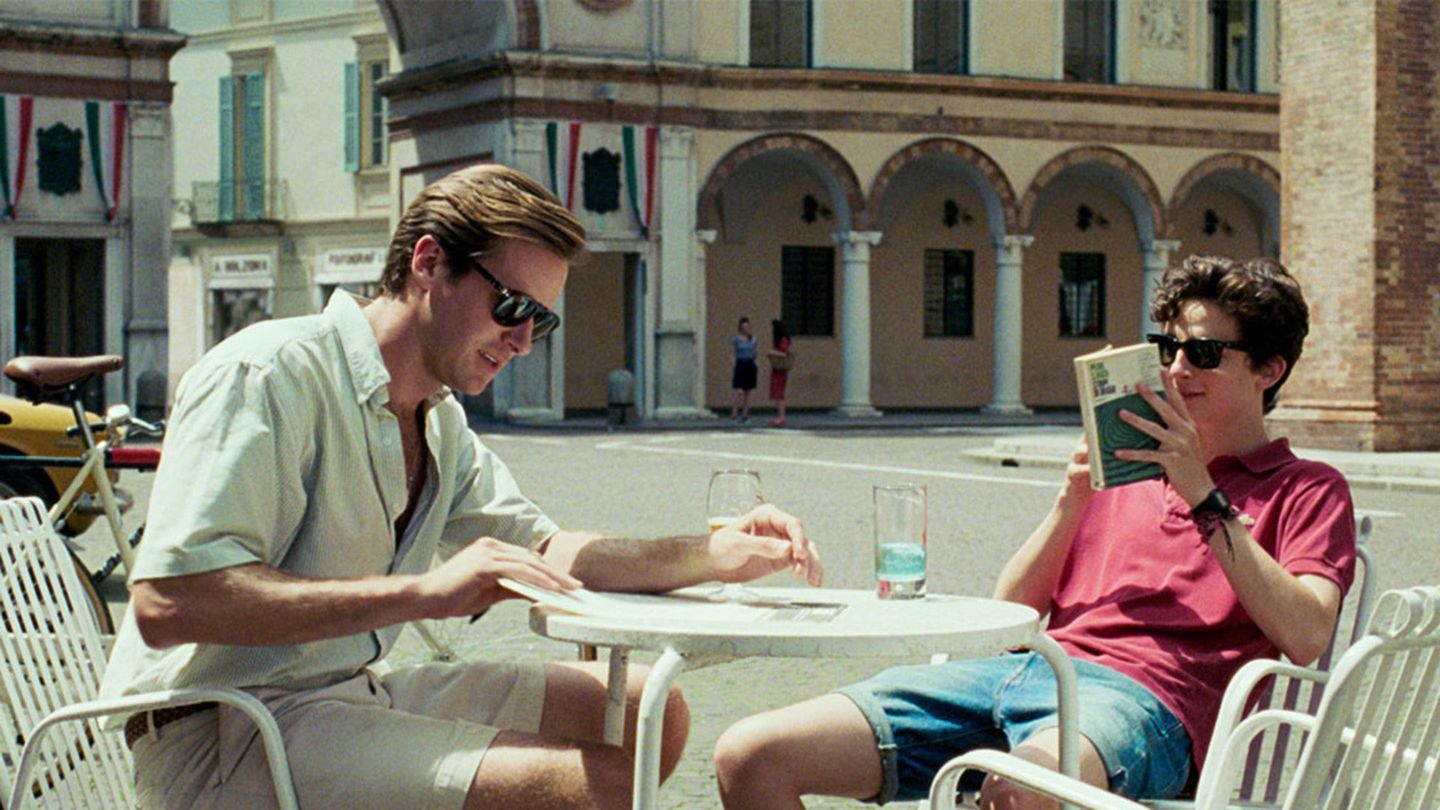
André Aciman: “Sometimes love needs artificial respiration”
The Call Me By Your Name and Find Me author on romance, fulfilment — and the infamous peach scene
- Words: Joseph Bullmore
When André Aciman meets his fans (and these days there are plenty of fans to meet) the first thing they say to him is: “you have written my life story.” He hasn’t, of course. But what they mean is that his books — Call Me By Your Name, for example, or its sort-of-sequel Find Me — seem to articulate the troubles of their heart so beautifully and simply. “And what I tell these people is that I have just given them a kind of emotional itinerary that is true for every human being,” Aciman says. “I tend to be quite bold and very honest about what happens to us when we meet someone else. There’s a degree of insecurity that no-one ever really talks about, and people recognise that frailty when they read my books.”
“All I’m interested in is psychology. Not in the Freudian sense. But in the sense of: what is it that makes people do what they do? And what do people really want out of life and are not getting?”
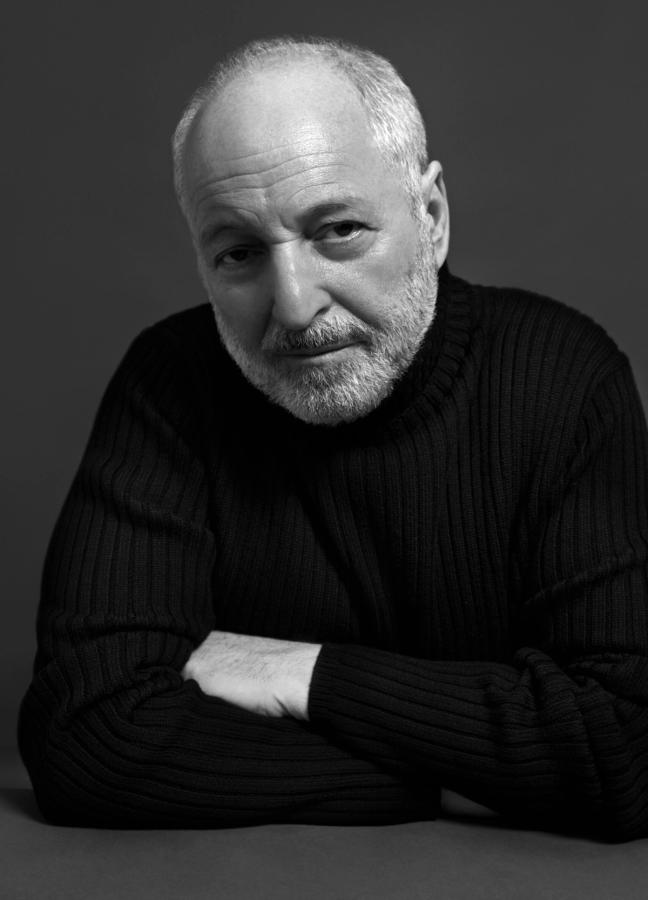
Usually, the answer to both those questions is simple: romantic fulfillment. (Though there are other kinds of fulfilment at stake here, too.) Just think of Elio and Oliver in Call Me By Your Name, Aciman’s 2007 novel about summer infatuation that was made into the beautiful Timothee Chalamet and Armie Hammer food fight back in 2018. Reading that, and watching it, I was suddenly 16 years old again, desperately pining for an unfeasibly blonde, impossibly tanned, slightly older friend-of-a-friend with a giant boyfriend and her own car. Cicadas, European thunderstorms, hot gravel and swimming pools at night. You just don’t have those feelings anymore, or at least not in the same way.
Aciman’s latest book, Find Me, is sort of a sequel to Call Me By Your Name, but also sort of not. It’s just been released in paperback, and I won’t ruin the story other than to say that it is as lovely, nostalgic and beguiling as its forbear. When I spoke to Aciman recently, over a transatlantic Zoom link, I began by asking him about young summer love — and wondering whether or not we’re all just hopeless teenagers, waiting once more to jump into the pool.
AA: I think we never change. Just because you’ve got to 80 years old doesn’t mean you can’t have a crush on someone and feel as hopeless and despairing as you did at 14 years old. There’s no difference, and more importantly there shouldn’t be a difference — and if there is one, it’s because you’ve forced yourself to behave like an old person. I don’t believe that people change at all. But I do think that you bring your own inhibitions to whatever new person you meet. You have the same fears, the same insecurities. Those never go away. And I hope they don’t — otherwise I’ll be dead!
JB: There’s a sense in this book that love affairs can and do have happy endings. Do you think that’s true?
Love requires effort. It takes work and it takes courage, especially. People think that falling in love is just something that happens. But it takes a lot of coddling, a lot of nursing. And if you want it to last you have to work. Domesticity is the thing that actually kills romance. And you have to keep it alive, however you do it. Sometimes that requires artificial respiration.
The opening scene of Find Me very closely follows something that actually happened to you, on a train. Is that right?
Yes. It was extremely inspiring, and I have no idea why. But I was on a train and near me sits this beautiful woman, and we start speaking, and I found it absolutely riveting. Then she gets off the train. You could let it go and think “this is a nice little moment”. Or you can take it to the next step in your own imagination, which is what all writers do. The most beautiful thing as a writer is to take a fantasy and transform it into something that becomes nine-to-five work. When people respond to my work, and say they felt something, I say: yes, I felt something at the very beginning of it. But afterwards it just became work. But I love the work too.

How long after that encounter did you put pen to paper?
As soon as she got off the train. I was working on my computer on a piece about my father which I didn’t want to write and which had become gruelling. And as soon as she got out, I opened up a new file and began to write.
Were you looking for inspiration like that? Did you want to write a sequel to Call Me By Your Name?
No. I had tried to write a sequel many, many times. It’s a story that affects you retrospectively, and it haunts you, and you’re never done with it. And I tried to write a sequel immediately afterwards, and it just felt like the same book. I felt I had written it already. How many times is Elio going to feel insecure in the same way with someone he has slept with already? It felt artificial, so I abandoned it. But when this came about, I had a feeling that this is a grown man, and I began to define it. The next thing you know, I had re-inserted myself into a world I kind of liked, and that I had been sorry to let go of.
Do you think people just follow the easy course when it comes to love, sometimes — the path of least resistance?
Many people will tell me: “we couldn’t be together because we live in a different city.” And I say: “why is that an impediment? Why does that stop you from being with who you want to be with?” Find a solution. Or be together once a month, or pay the money that you need to pay — eventually you will find a solution. Many people just break up because the situation is not amenable.
Do people come to you often for romantic advice?
They do. This is the strange thing. Of all the people that shouldn’t impart advice, I’m the one. I’m still looking for advice. I’m still trying to figure it out!
What’s missing?
There are so many things that are missing in life. It’s horrible! I like to travel, I would like to learn new languages, sometimes I’m tired of being a writer. If there’s a new chapter of my life, I want to read it. I don’t want to be doing the same things all the time. I’ve been teaching for the past 45 years. Maybe I should try something different before it’s too late.
Am I a serene person? I think I am. But am I fulfilled? I don’t think so. I have wonderful people around me, so I’m very happy that way. But you never know. I’d love to live somewhere else, in a new country, just to explore what it’s like to be in Sweden, for example. Why not? I’d love to live there for a while. I probably never will. But it’s a nice fantasy.
Do you find yourself asking “what if?” a lot?
Our field of vision is extremely wide. And we are constantly thinking of other things. That doesn’t mean we’ll do them. But sometimes you get that whiff of something new, and it’s wonderful to imagine. I think that’s part of living. If you don’t have that, what are you doing?
Your characters are so emotionally fluent that I find myself wondering, as an Englishman, whether these stories would be possible with English people as the leads. Am I right in believing the old cliche about English people being emotionally buttoned up?
No. You’re totally wrong. English people want to think of themselves as fundamentally reclusive and well behaved. But that’s not the truth at all. I think they are quite open when you let them be. You don’t have to be Mediterranean to act like a Mediterranean person. I think we’re all the same.
Do people often say to you that you’re writing their lives, in a way?
Yes. It’s uncomfortable sometimes, because I’m taking something from my own heart and drawn from my own experience. And people say: “but this is exactly my life. You’ve written me.”
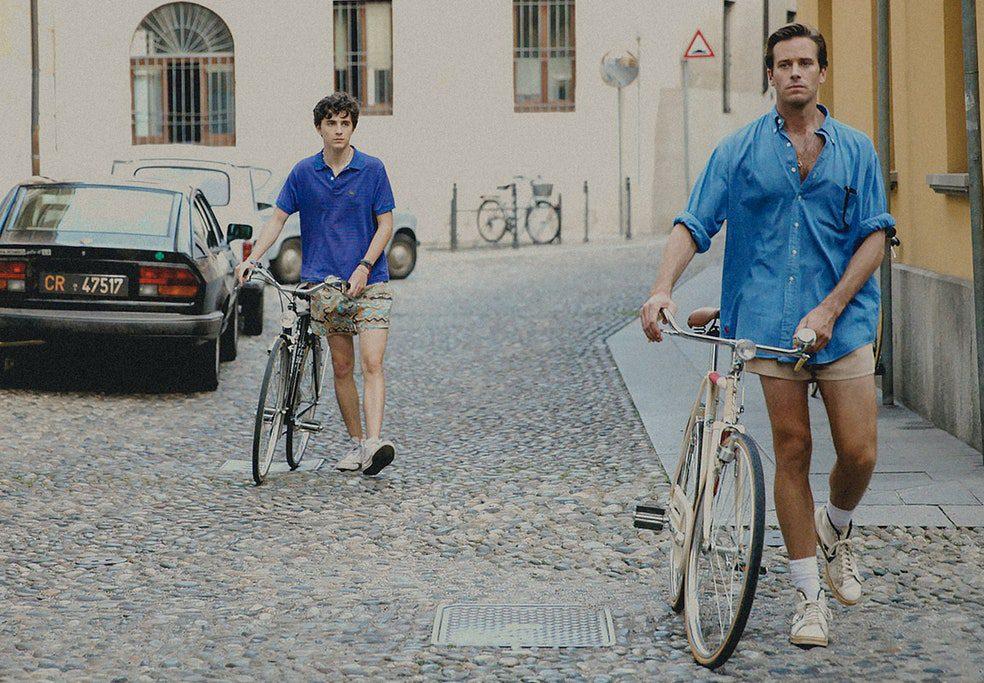
Do you read reviews of your books?
I’ve stopped. Because from the first sentence you know what they’re going to say. It’s very difficult for people to say something new. In a 500 word piece, it’s very difficult to find a new idea gestating there. When I go to Amazon and I see all the fantastic reviews, I think it’s very nice that these people are writing reviews, but I feel there’s nothing really substantive there. And with the negative reviews, I think: he’s probably right. I side with my antagonists. I take their advice. The criticism rolls off my back. But the advice: I listen to it.
How did you find the adaptation of Call Me By Your Name?
I loved the film. I liked it a lot. I thought it worked. It was done beautifully. They spent a very short time filming it. Every actor was fantastic. The sound was beautiful, the music was great. Everything was perfect.
A huge amount of the cultural reaction to the film centres on the ‘peach scene’. Do you find it odd how that scene became so widely talked about, and how your work might always now be associated with peaches?
Well there’s nothing I can do about it. It has become what it has become! When I first wrote the scene I was having a great deal of fun writing it. I was going to delete it, because I felt I couldn’t publish it — after all, I had graduate students in classes and seminars. How would they look at me if they knew I’d written the peach scene? So I was quite clear about this. But the editor said: don’t cut it out. What I’ve found nowadays is that when a different country purchases the right to the book, what they put on the cover is always the peach. And I think: be a bit more subtle! Don’t make that the basic essence of the book! But some people think it is. And there’s nothing I can do about it.
Will there be a film adaptation of Find Me?
People are interested, but no-one has made an offer. It’s a very difficult thing to do a Godfather Part II. The first movie was so well put together that it’s almost dangerous to do something with that story again. So there’s a kind of reluctance on the part of the film industry to engage in it. For the moment…
Find Me is published by Faber and is out now in paperback.
Looking for more reading material? These are the best spy novels (that aren’t James Bond)…
Become a Gentleman’s Journal member. Find out more here.
